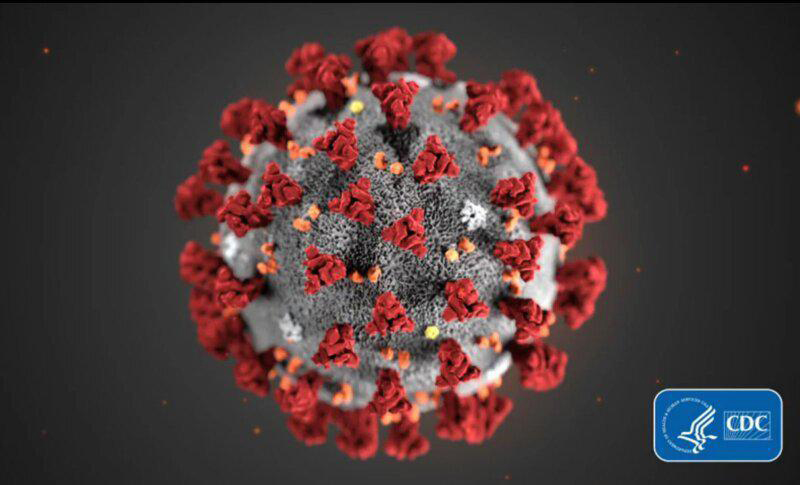UNI cancels international travel, COVID-19
Mar 9, 2020
In less than four months, the term “coronavirus” has become a household name.
With three new confirmed cases in Iowa, as announced Sunday evening, the virus has already made a significant impact on the UNI community.
Last week, students and faculty received notice that all university-sponsored international travel would be suspended in the wake of the coronavirus — first for the next 30 days and then, in a subsequent announcement, for all summer 2020 study abroad courses.
The coronavirus disease
2019 (COVID-19), first identified in Wuhan, China, in December 2019, has now spread to every continent except Antarctica. It is a respiratory disease similar to influenza, transmitted through droplets from coughing or sneezing or by touching infected surfaces. The World Health Organization (WHO) has declared the coronavirus a Public Health Emergency of International Concern. As of March 8, according to WHO, 105,586 cases have been confirmed worldwide, with upwards of 200 cases confirmed in the United States.
Travel restrictions from the UNI administration occurred in stages, following recommendations from the Centers for Disease Control and Prevention (CDC). In January, the CDC designated mainland China as “Level 3 — Avoid Nonessential Travel.” At that time, UNI issued a temporary moratorium on university-sponsored travel to China and recalled all students, faculty and staff there.
The moratorium was extended to South Korea on February 29, Italy on March 2 and Iran on March 3, as the CDC raised those countries to Level 3. Students in the UNI Camp Adventure program were also recalled or transferred from affected areas.
The situation escalated on Thursday, March 5, when the Iowa Board of Regents issued a statement for all three of Iowa’s public universities.
“Safety of our campus communities is a paramount concern for the Board of Regents,” the Board wrote. “Based on [the] most recent guidance from the CDC and IDPH [Iowa Department of Public Health], as well as the quickly evolving impact of the COVID-19, the Board of Regents is cancelling all university-sponsored international travel for all faculty, staff and students for 30 days (including spring break) effective immediately.”
UNI President Mark Nook released this information in an email to the campus community and indicated his approval of the Board’s decision.
“Although the decision to temporarily cancel international travel may be disappointing, we agree it is in the best interests of our campus at this time,” Nook wrote.
Students expressed surprise and disappointment at the news on Thursday.
“I did not expect this. The most I was probably expecting was quarantine coming back, at most,” said Aidan Shorey, a freshman music education major and euphonium player with the Wind Ensemble. The group was scheduled to travel to Germany, Paris and Belgium during spring break.
Fellow Wind Ensemble member Mack Vos, a senior music technology and interactive digital studies double major, agreed.
“We were being warned […] that it might happen, but we didn’t think it was going to be a huge concern,” he said. “I’m not looking forward to next Monday during [Wind Ensemble] rehearsal. It’s going to be a downer.”
The Board’s statement applied only through April 4, and Vos and Shorey said that they had received word that their trip might be rescheduled for May. However, UNI’s COVID-2019 task force, comprised of representatives from various areas of campus such as Public Safety, Academic Advising and the Office of International Programs, made the subsequent decision to cancel all UNI summer study abroad courses and international travel.
The news was released to affected students and faculty on Thursday evening and to the general campus community on Friday, March 6.
“Based on multiple conversations, including with the Study Abroad office, Deans, and the Board of Regents office, we have made the decision to cancel our study abroad courses for the coming summer,” wrote Provost Jim Wohlpart in the March 6 general campus email.
At this time, the University of Iowa and Iowa State University have not cancelled summer programs. Wohlpart explained in his email that, unlike the other two state universities, UNI’s study abroad programs do not use outside vendors, creating a very different financial situation. By cancelling early, the task force hoped to minimize the financial and academic risks.
“Canceling now mitigates the financial impact on all parties involved,” Paula Van Zee, Study Abroad Center director, wrote in an email to affected students on Friday, March 6. “It also allows the university to make alternate academic plans. If cancelation were to occur closer to the start of May term, this would have been extremely challenging and risked many students not fulfilling graduation requirements.”
For students who need a capstone or other credits this summer to graduate, alternative courses will be created by the deans, department heads and faculty.
Although students were initially told that their $100 study abroad application fee would not be refunded, they received notice in a subsequent email that they would in fact receive a full refund. Students will also not be charged for items that would have appeared on their U-Bill in May, such as tuition, fees, insurance and program costs.
“We are absorbing the costs that we have already paid to vendors abroad on students’ behalves,” Van Zee wrote.
Katie Hopping, a junior communication and public relations major, was enrolled in a June capstone course in Italy. She said she appreciates that the administration and Study Abroad Center are absorbing the financial ramifications.
“It’s a lot of money that they are in loss of,” she said. “They’re not making us pay a lot of things that we could have paid. I want to put the Study Abroad [Center] in a positive light. They care about us and they’re just looking out for the students.”
Italy, Hopping’s destination, has become an epicenter of the coronavirus, with more than 5,800 cases confirmed as of March 8, according to WHO. The Italian government has recently announced its decision to quarantine much of northern Italy, affecting nearly 16 million people, until early April.
With those sobering statistics in mind, Hopping is relieved that the university made the decision to cancel. She said that, had the trip proceeded as scheduled, she would have been nervous about the potential health risks and conflicted about whether to go.
For students traveling to countries without such high reports of the virus, however, the ban on all international travel is harder to take.
“It does feel a little overblown to me,” Vos said. “With where we were going it would have been fine. If we were going to Italy or something, that would’ve been completely different.”
“It’s not that bad of a virus,” Shorey said. “Yeah, there’s no vaccine for it, but the flu’s worse.”
The university recognizes the disappointment faced by students planning on study abroad experiences and has reiterated that the task force gave significant thought to its decision.
“This decision was not made lightly and was done with the best interest of the students and the institution in mind,” Wohlpart wrote. “[W]e have a remarkable group of dedicated, intelligent, wise, and caring leaders working on this. It has consumed many of them, and I would ask that you show your appreciation for their efforts as well. We are in good hands.”
The threat of coronavirus remains low for the general Iowa and campus populations, but the university is taking steps to prepare for more extreme measures. In a March 3 message posted on prepare.uni.edu, the university website developed to house information related to the coronavirus, Wohlpart described UNI’s preparations for the unlikely event of a campus shutdown.
“[O]ne of the more extreme impacts [of the coronavirus] could be the need to close campus to a physical presence,” Wohlpart wrote. “For both the near term and the far term, Information Technology and Distance and Continuing Education are proactively working on resources to support faculty in making a potential shift to the remote delivery of instruction. This includes expansion of services, support for course-specific software needs, and resources for multiple forms of remote delivery.”
Wohlpart emphasized that these contingency measures are unlikely and that there is no need for immediate concern. As of now, students and faculty should practice good personal hygiene by washing hands, covering coughs and sneezes and staying home when sick. The university will continue to provide updates through email communication and prepare.uni.edu. Students may also contact the Health Center or the Study Abroad Center with questions.
In addition, a panel of experts from UNI and the Black Hawk County Health Department will discuss the coronavirus and the county and university’s plan to combat its spread at 3 p.m. Wednesday, March 11 in Lang Hall Auditorium.
The panel will include health, recreation and community services professors Catherine Zeman and Michele Devlin, as well as Shelley O’Connell, director of Health and Recreation Services. Also present will be Black Hawk County Health Department disease surveillance and investigation manaer Joshua Pikora and epidemiologist Aaron Reinke.
Students and community members are invited to submit questions for the panel by filling out the form at docs.google.com/forms/d/e/1FAIpQLSe1Rl2Cihfx3TPVp2w3bWDewBV-9-a4r4ApOjNDcST0YF4qcg/viewform.
For now, students like Vos, Shorey and Hopping are doing their best to adjust to the disappointment and make plans.
Hopping said that she is ultimately grateful to the UNI administration for their proactivity in protecting students and faculty.
“I appreciate that they’re putting students’ safety first, even though it’s disappointing that we can’t go,” she said. “I know a lot of students are disappointed, but I think that UNI strive[s] to have their students safe, and they’re putting that into action, and I appreciate that.”















